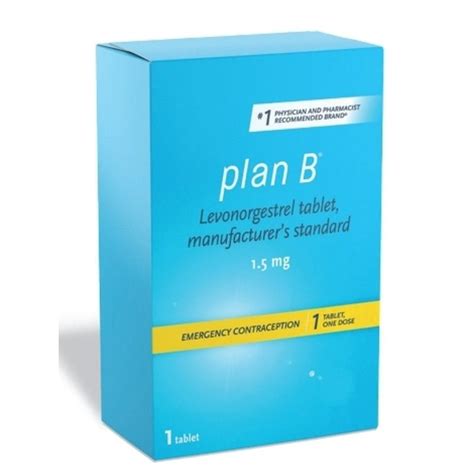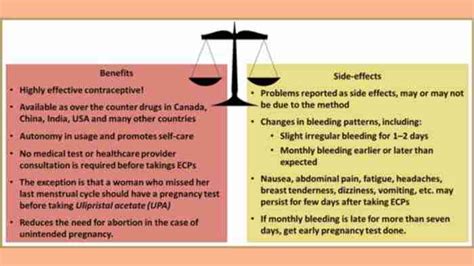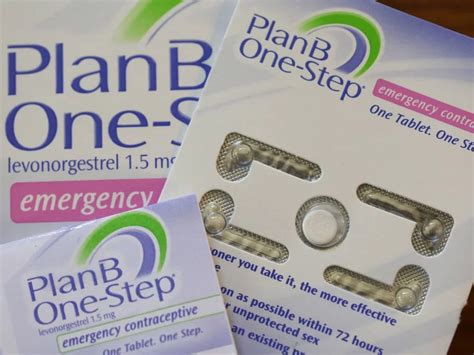Intro
Get Plan B emergency contraception for unplanned pregnancies, learn about morning-after pills, and understand how to use backup birth control methods effectively, including emergency birth control options and preventive measures.
Emergency contraception, often referred to by the brand name Plan B, is a crucial aspect of reproductive health. It provides a safety net for individuals who have had unprotected sex or experienced a contraceptive failure, helping to prevent unintended pregnancies. The importance of understanding and accessing emergency contraception cannot be overstated, as it empowers individuals to make informed decisions about their reproductive health and futures.
In the realm of reproductive rights and health, access to emergency contraception is a cornerstone of comprehensive care. It is designed to be used after unprotected sex, serving as a last line of defense against pregnancy. This form of contraception works by delaying or inhibiting ovulation, thereby preventing fertilization of an egg by sperm. It is essential to note that emergency contraception is not the same as an abortion; it does not terminate an existing pregnancy but rather prevents a pregnancy from occurring.
The need for emergency contraception arises from various scenarios, including but not limited to, condom breakage, missed contraceptive pills, or any situation where unprotected sex occurs. In such instances, having access to and knowledge about emergency contraception can significantly reduce the risk of unintended pregnancy. This aspect of reproductive health is not just about personal choice but also about public health, as unintended pregnancies can have significant social, economic, and health implications.
Understanding Plan B Emergency Contraception

Plan B, one of the most recognized brands of emergency contraception, typically contains levonorgestrel, a hormone that has been used in birth control pills for decades. It is available over-the-counter (OTC) for individuals 17 years and older and by prescription for younger individuals. The medication is most effective when taken as soon as possible after unprotected sex, ideally within 72 hours. However, it can still be effective when taken up to 120 hours (5 days) after unprotected sex, albeit with decreasing efficacy over time.
How Plan B Works
The exact mechanism of how Plan B works is multifaceted and not entirely understood. However, it is believed to primarily prevent or delay ovulation, which is the release of an egg from the ovary. By delaying ovulation, it reduces the chance of fertilization by sperm. Additionally, Plan B may affect the lining of the uterus, making it less receptive to implantation of a fertilized egg, although this is considered a secondary effect.Benefits of Emergency Contraception

The benefits of emergency contraception are numerous and significant. Firstly, it provides a second chance for individuals who have had unprotected sex or experienced contraceptive failure, reducing the risk of unintended pregnancy. This can be particularly important for individuals who are not ready or able to become parents, whether due to personal, financial, or health reasons.
Moreover, access to emergency contraception can have broader societal benefits. Unintended pregnancies can have significant economic and social implications, including increased healthcare costs, potential for lower educational and career attainment for the parents, and a range of other challenges. By reducing the number of unintended pregnancies, emergency contraception can contribute to healthier families and communities.
Accessibility and Affordability
Accessibility and affordability are critical factors in the utilization of emergency contraception. In many countries, emergency contraceptive pills like Plan B are available over-the-counter, making them more accessible. However, cost can be a barrier, especially for young or low-income individuals. Efforts to increase access, including reducing costs or providing subsidies, can significantly impact the use and effectiveness of emergency contraception.Steps to Obtain Emergency Contraception

Obtaining emergency contraception can be straightforward, but it requires some knowledge and planning. Here are the steps to follow:
- Identify the Need: Recognize the situation where emergency contraception is needed, such as after unprotected sex.
- Choose the Type: Decide on the type of emergency contraception to use. Plan B (levonorgestrel) and Ella (ulipristal acetate) are two common options, each with its own characteristics and requirements.
- Find a Provider: Determine where to obtain the emergency contraception. This could be a local pharmacy, healthcare provider, or online retailer, depending on the location and type of contraception.
- Follow Instructions: Once obtained, follow the instructions provided with the emergency contraception carefully. This typically involves taking one or more pills within a specified timeframe after unprotected sex.
Common Misconceptions
There are several misconceptions about emergency contraception that can affect its use and effectiveness. One common myth is that emergency contraception is an abortion pill, which is not accurate. Another misconception is that it can be used as a regular form of birth control, which is not recommended due to its higher hormone dose and potential side effects.Side Effects and Safety

Like any medication, emergency contraception can have side effects. Common side effects include nausea, vomiting, abdominal pain, headache, dizziness, and breast tenderness. These side effects are usually mild and temporary, resolving on their own within a few days. It's essential to note that while these side effects can be uncomfortable, they do not typically pose a significant health risk.
In terms of safety, emergency contraception is considered safe for most women. However, there are certain conditions or situations where its use may be contraindicated or where caution is advised. For example, individuals with a history of certain medical conditions, such as liver disease, or those taking specific medications, should consult with a healthcare provider before using emergency contraception.
Future Developments
Research into emergency contraception continues, with efforts focused on improving its effectiveness, reducing side effects, and expanding access. One area of development is the creation of new formulations or delivery methods that could make emergency contraception more user-friendly and effective.Conclusion and Next Steps

In conclusion, emergency contraception, such as Plan B, plays a vital role in reproductive health by providing a safe and effective means to prevent unintended pregnancies after unprotected sex or contraceptive failure. Understanding how it works, its benefits, and how to access it is crucial for individuals to make informed decisions about their reproductive health.
For those interested in learning more or seeking to access emergency contraception, the first step is to consult with a healthcare provider or visit a local pharmacy. Additionally, numerous online resources and hotlines are available to provide information and support.
As we move forward, it's essential to continue the conversation about reproductive health and to advocate for increased access to all forms of contraception, including emergency options. By doing so, we can work towards a future where every individual has the ability to make informed choices about their reproductive health, free from unnecessary barriers or stigma.
What is emergency contraception, and how does it work?
+Emergency contraception, like Plan B, is a form of birth control used after unprotected sex to prevent pregnancy. It works primarily by delaying or inhibiting ovulation, thereby preventing fertilization of an egg by sperm.
How effective is emergency contraception?
+The effectiveness of emergency contraception can vary depending on the type used and how soon it is taken after unprotected sex. Generally, it is most effective when taken within 72 hours and can reduce the risk of pregnancy by up to 89% if taken within this timeframe.
Is emergency contraception the same as an abortion pill?
+No, emergency contraception and abortion pills are not the same. Emergency contraception prevents pregnancy by delaying ovulation or making it harder for a fertilized egg to implant in the uterus. It does not terminate an existing pregnancy, unlike abortion pills, which are used to end a pregnancy after it has been established.
We invite you to share your thoughts, questions, or experiences with emergency contraception in the comments below. Your input can help others understand the importance and availability of this vital aspect of reproductive health. Additionally, consider sharing this article with someone who might benefit from this information, as education and awareness are key to empowering individuals to make informed decisions about their reproductive well-being.
